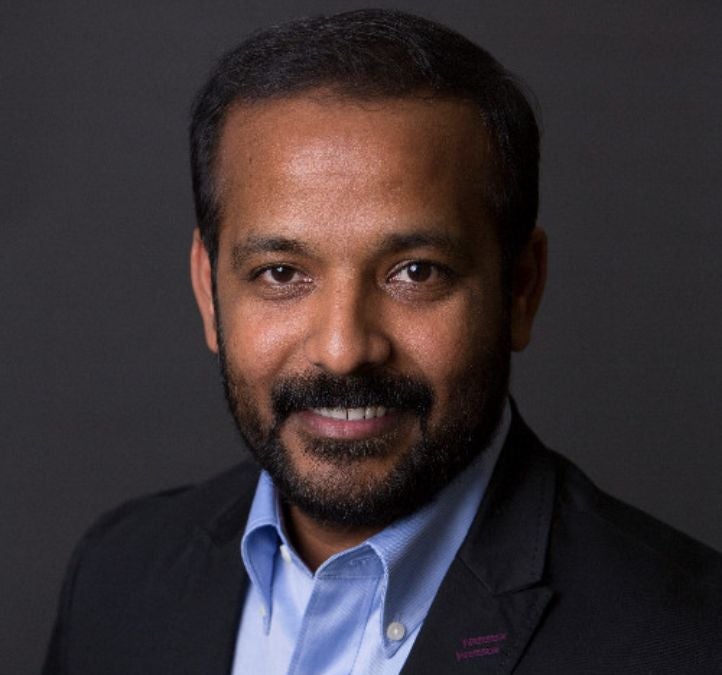
In the latest instalment of HC Insider’s Diversity Champion series, we sat down with Raj Murugesan, Head of Global Poultry at dsm-firmenich. In this interview, Raj shares insights into his career journey, which has spanned over two decades, with more than 15 years dedicated to dsm-firmenich.
Not only transitioning across industries but also moving across continents and embracing cultural differences after relocating from India to the US, Raj delves into the strategies he employed to adapt and thrive in diverse environments. Additionally, he offers valuable perspectives on the importance of fostering an inclusive workplace culture and the role of allies in driving meaningful change.
HC Insider: Can you provide an overview of your professional journey leading up to dsm-firmenich?
Raj Murugesan: I just completed my fifteenth year at dsm-firmenich and about 70 per cent of my entire career has been with dsm-firmenich. Before that, I worked for three different employers and I also had my own practice right out of vet school. I started as a veterinary practitioner working with pet animals, then transitioned to a feed company working in dairy cattle and poultry feed sales. From there, I moved into more technical and innovation roles, including product formulation and development. My career took me through various industries, from feed to feed additives to software development for feed formulation. Alongside my professional roles, I pursued an MBA and completed a PhD in the US. I’ve had the opportunity to work across different continents and industries, which has enriched my learning experience. With dsm-firmenich, I’ve held roles in innovation, product development, technical service, sales, marketing, and now focusing on the poultry business.
HC Insider: How have you approached career transitions throughout your journey?
Raj: For me, the key to growth has always been to seek new challenges and opportunities for learning. I keep myself engaged and passionate about my work by approaching it like a chess game rather than just ticking off boxes on a to-do list. Each transition to new assignments presented diverse challenges and kept me motivated. I would say that I thrive in demanding environments and see steep learning curves as opportunities rather than stressors. When things start to feel too comfortable, that's when I know it's time for a new challenge.
When moving to a new place, it's like being an alien to the group in some ways. It's not just about physical appearance but also about the values, culture, and behaviors you bring with you.
HC Insider: After living in the US for 14 years since moving from India, how did you navigate and adapt to the cultural differences between the two countries, both personally and professionally?
Raj: Being pragmatic has been crucial for me in adapting to cultural differences, both personally and professionally. When moving to a new place, it's like being an alien to the group in some ways. It's not just about physical appearance but also about the values, culture, and behaviors you bring with you. People tend to quickly judge based on these differences, which is a natural survival instinct.
So, rather than expecting others to understand me, I always took the approach of educating people around me about who I am and what I bring to the table. Secondly, trust is essential for effective collaboration. Building trust has always been my priority in both personal and professional relationships. I've always surrounded myself with passionate individuals who are willing to go the extra mile, and trust is mutual in these relationships.
I encourage open-mindedness and diverse perspectives within my team, allowing everyone the opportunity to express their opinions and finding common ground. Finally, being flexible and adaptable have been key in my journey of assimilation. While I've had to make changes to fit into new environments, I've also remained true to myself and my values. It's about finding the balance between integration and staying authentic.
To speak to our Agriculture and Nutrition team, please contact:
HC Insider: Could you delve deeper into your experience with assimilation?
Raj: Absolutely. Language and food are crucial, in my perspective. The more you immerse yourself in both, the more seamlessly you integrate yourself. Understanding cultural references, like jokes or nostalgic TV shows, fosters connections. It's about being open to others' experiences and stories, which not only builds rapport but also enriches your own perspective.
Food plays a significant role too. Being raised in India, I was used to eating spicy food and my palate underwent a significant transformation. I had to learn to appreciate new flavors and textures, like the sweetness in BBQ, which was unfamiliar to me initially as you don’t put anything close to sugar on meat in India, it’s supposed to be spicy. Embracing these culinary differences helped me forge deeper connections with colleagues. Sharing meals, especially Indian cuisine, became a way to bridge cultural gaps and foster understanding. It's all part of the journey of assimilation, where each new experience brought me closer to feeling at home in my new environments.
While my leadership style may draw from my cultural upbringing, it's also shaped by my experiences and the valuable lessons I've learned along the way. It's about finding the right balance between caring and independence, empathy, and professionalism, to create an inclusive and supportive work environment.
HC Insider: Do you integrate aspects of your cultural background into your leadership style at dsm-firmenich?
Raj: Yes. One aspect deeply ingrained in me is the notion of caring, a fundamental value in Indian culture. Although, while caring is important, I've learned that there needs to be a balance. For example, care often transcended boundaries back home, sometimes becoming overly intrusive. Here, in the Western context, independence is highly valued, but it can sometimes lead to lack of empathy. So, I consciously blend the best of both worlds.
I prioritize caring for my team members, fostering an environment where they feel supported and valued. It goes beyond professional success, to personal growth and well-being. This has helped me to maintain strong relationships with my former team members as well, as they’d reach out for support when they needed even after they've moved on. When I hire new team members, I make commitments to support and develop them. My leadership style is not only drawn from my cultural upbringing, it's also been shaped by my experiences and the valuable lessons I've learned along the way. It's about finding the right balance between caring and independence, empathy, and professionalism, to create an inclusive and supportive work environment.
At HC Group we believe that inclusive organisations with diversity at all levels can deliver better performance.
Explore how HC Group’s Diversity Studies service can support your DE&I vision.
Fill in our Client Presentation Request Form to learn more.
HC Insider: Can you share a specific instance where you addressed a cultural barrier or misunderstanding in your professional interactions?
Raj: One notable example is when I noticed one team member who was exceptionally quiet and hesitant to voice their thoughts. I made it a point to encourage their participation every single time, emphasizing the value of their insights and experiences. I always tell my team members that I have hired them because I believe in their potential. It took some time, but gradually, that individual gained confidence and started contributing more assertively.
People from some cultures are used to asking questions and speaking up, whereas people from other cultures might not be so comfortable with voicing their opinions. It’s important to be aware of who you need to help and how you need to help them. Fostering an environment where every voice is valued and encouraged is essential for maximizing team potential. Through understanding and support, we can help individuals unlock their capabilities and achieve success.
HC Insider: Reflecting on your 15-year journey at dsm-firmenich, what impact have Diversity, Equity, and Inclusion (DEI) initiatives had on your experiences within the company?
Raj: Things have changed a lot in these 15 years owing to various factors, most importantly the opportunities for diversity and inclusivity. When I had to build a new team once, we interviewed a substantial number of candidates, at least about 20 for each role, and the best candidates were selected for each role. Interestingly, at one point, it was an all-female team. This wasn't a deliberate choice on our part to form an all-female team; rather, it reflected the talent and potential of the candidates we interviewed.
Also, my current team comprises of talents from multiple nationalities, working from around the world, and supporting our teams across different countries. Again not because of any predetermined quota or preference, but simply because they were the best fit for the roles. We have developed contingency plans to ensure smooth operations during any absences, as there are lots of differences in the policies across the countries, including holidays, maternity and paternity leaves, etc. These plans proved effective when team members go on leave. It's essential to support employees through various life stages while ensuring smooth operation and productivity.
In terms of diversity, my goal is to build a team that reflects a broad range of skill sets and perspectives. I've found that this diversity drives innovation and creativity through cross pollination, leading to better outcomes for the company. While challenges exist, such as navigating biases and microaggressions, I remain committed to fostering an inclusive workplace where everyone is supported and can thrive.
HC Insider: What does being an ally mean to you?
Raj: I think fundamentally it’s about empowering talents. When we deny opportunities to individuals based on superficial judgments or biases, we're doing a disservice. I believe it's crucial for a leader to create an environment where everyone has the space to grow and contribute. We can't expect everyone to excel from day one. It's about having the perseverance to give people the opportunity, patience, and support they need to develop themselves. Unfortunately, I've also seen some leaders take a transactional approach, where it's either perform or perish.
Also, it's not only about hiring diverse talent; but ensuring their long-term success and advancement by addressing the systemic barriers that hinder an individual’s progress. By focusing on individual empowerment and support, we can create a more equitable workplace for all. It's time to move beyond surface-level diversity metrics and prioritize the support and empowerment of every individual in the workforce.
Discover more Diversity Champions
- Usha Kakaria-Cayaux, Chief Human Resources Officer at olam food ingredients (ofi)
- Yuki Ghantous, Japan Country President at BHP
- Salam Safi, Vice President Human Resources at Darling Ingredients
- Ephi Banaynal dela Cruz, Co-founder and CEO, Context Nature, and Chair Emeritus Steering Committee for Responsible Minerals Initiative
- Renata Costa Zingre, Managing Director, Iron Ore Sales Europe and North America at Vale

